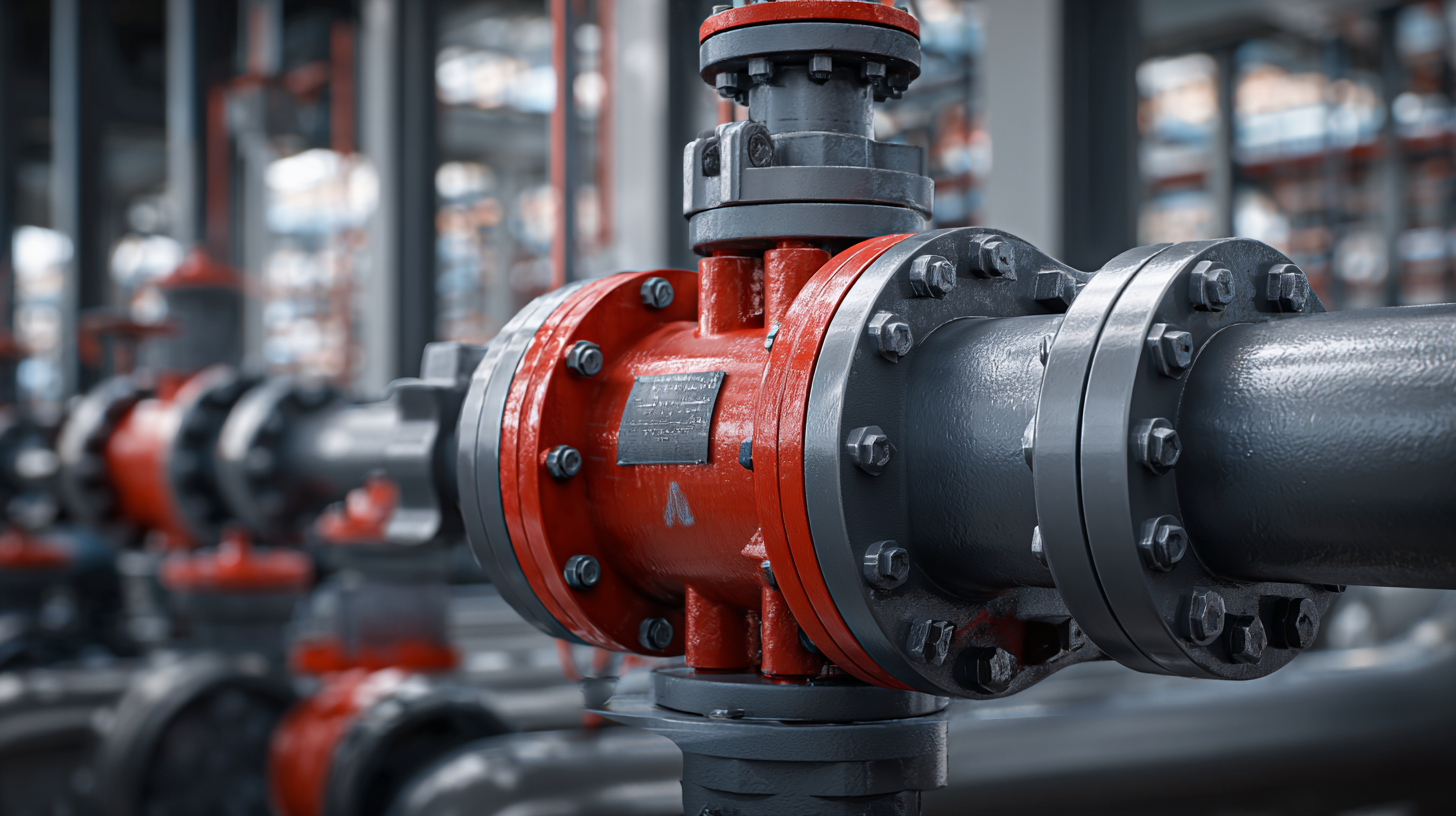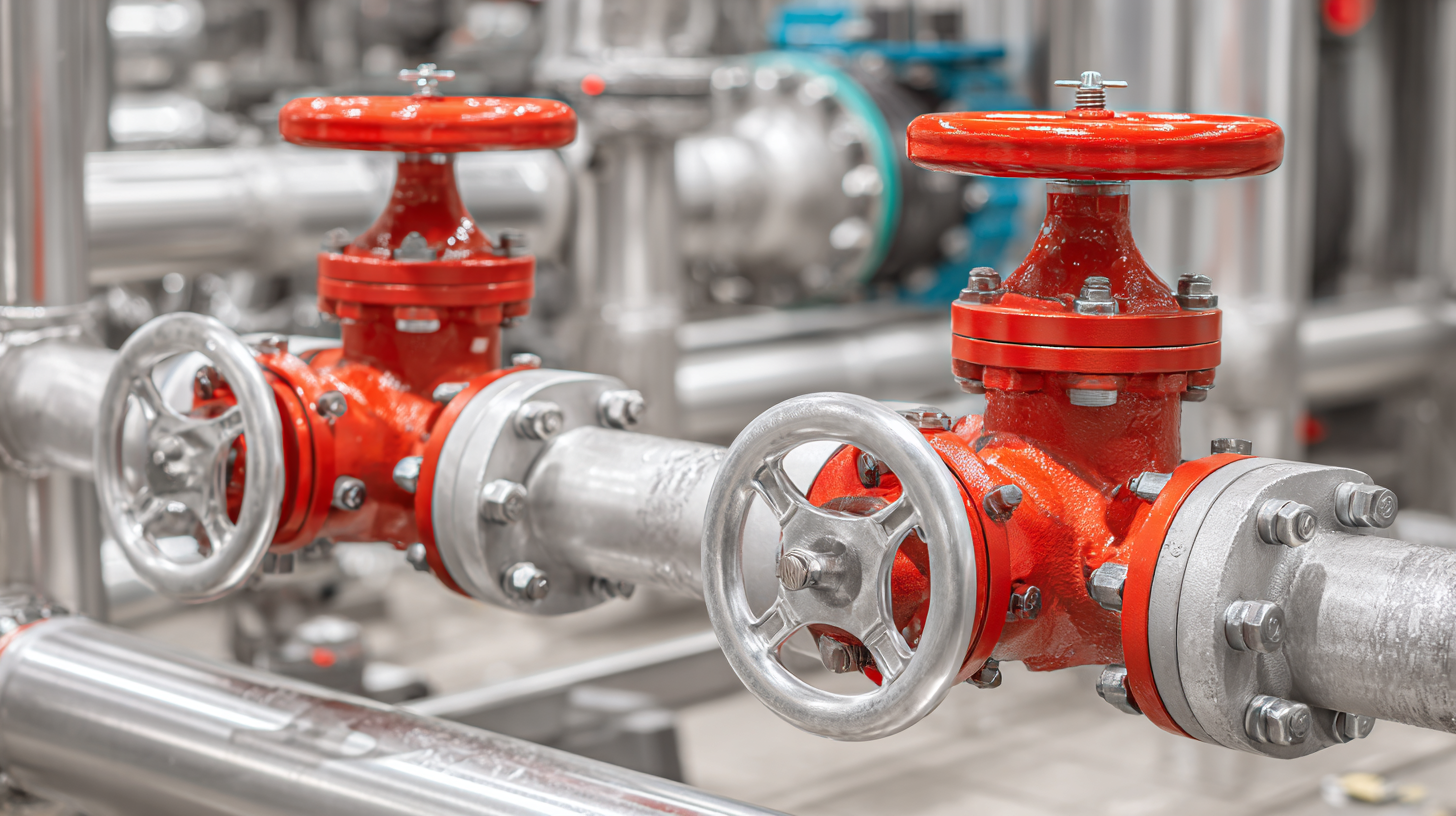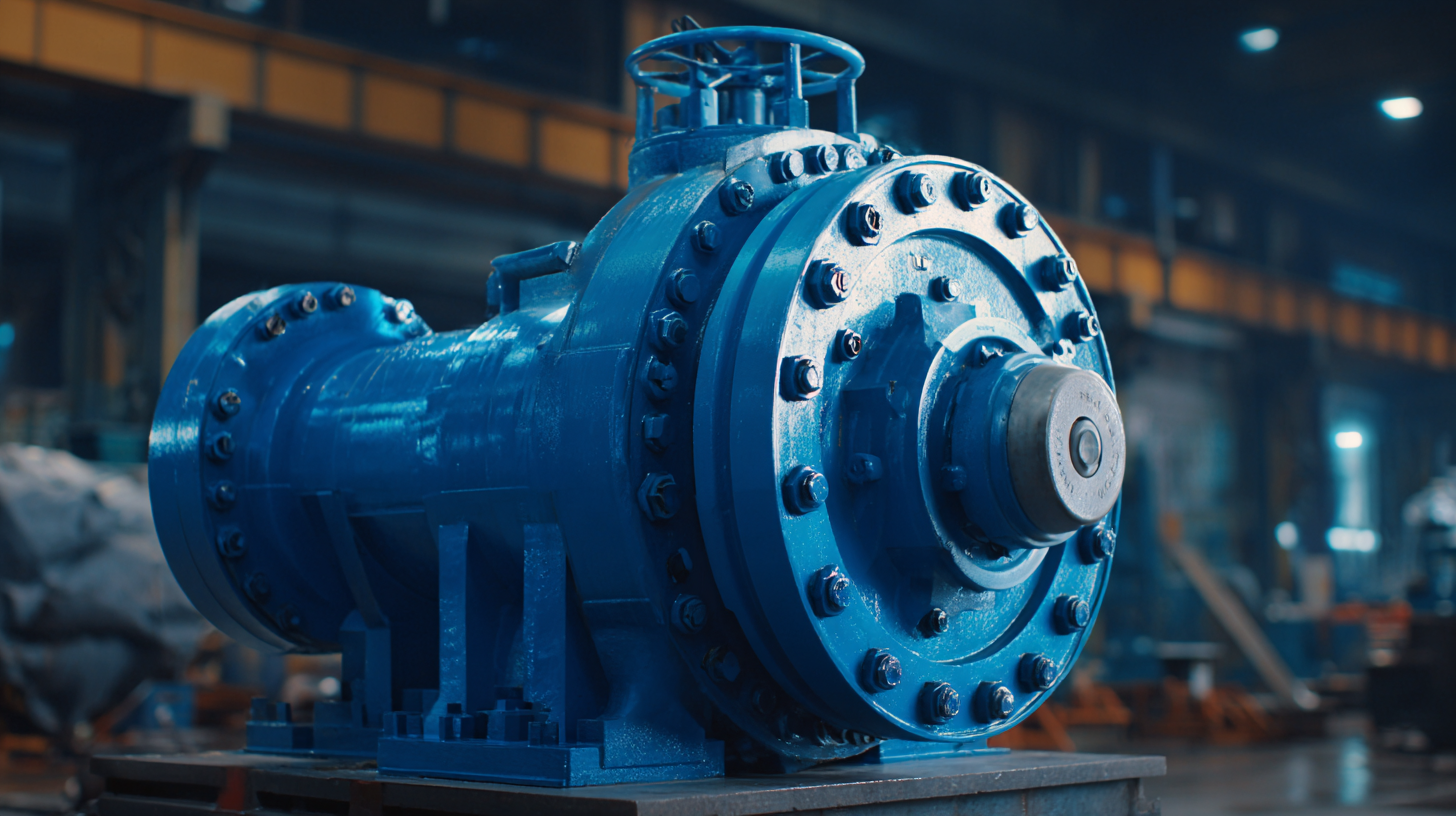In today's fast-paced industrial landscape, the role of valve manufacturers has become increasingly vital, serving as a keystone in a multitude of sectors ranging from oil and gas to pharmaceuticals. As industries evolve and embrace more sophisticated technologies, the significance of high-quality valves, produced by reputable valve manufacturers, cannot be overstated. These manufacturers not only innovate to improve efficiency and safety but also ensure compliance with stringent regulatory standards. The variety of valves they produce—ranging from gate and globe valves to ball and butterfly valves—plays a critical role in controlling fluid flow and pressure in complex systems.

This ultimate guide will explore the indispensable contributions of valve manufacturers in modern industries, highlighting their impact on operational efficiency, safety, and regulatory compliance, while also shedding light on the technological advancements shaping the future of valve manufacturing.
The evolution of valve technology has dramatically transformed industrial applications, enabling enhanced efficiency and safety across various sectors. From traditional mechanical designs to the emergence of smart valves, these innovations have significantly contributed to optimizing fluid control in manufacturing processes. The check valve market, anticipated to grow substantially, exemplifies this shift, driven by advancements in automation and smart technologies that facilitate real-time monitoring and control.
As industries embrace Industry 4.0 principles, valve automation systems are projected to increase in demand, expected to grow from USD 5.2 billion in 2024 to USD 8.9 billion by 2033. This growth underscores the crucial role that valve manufacturers play in integrating IoT capabilities into their devices, promoting seamless connectivity within industrial ecosystems.
Furthermore, the continuous evolution of technologies like carbon capture and hydrogen energy systems highlights how modern valves are not only central to operational efficiency but also pivotal in addressing sustainability challenges, marking a significant impact on the future of industrial applications.
In contemporary industries, valve manufacturers play a crucial role by providing advanced solutions that enhance efficiency and safety across various sectors. One key industry benefiting from these innovations is the oil and gas sector, where precision-engineered valves ensure the safe transport and processing of hydrocarbons. By employing cutting-edge materials and designs, manufacturers help mitigate risks associated with leaks and pressure fluctuations, thereby safeguarding both the environment and operational integrity.
Another industry that significantly relies on advanced valve technology is water treatment. Valves that can withstand corrosive elements and extreme conditions are essential for maintaining water quality and managing wastewater processes effectively. Investing in high-quality valve solutions can lead to better system performance and lower maintenance costs over time.
Tips: When selecting valves for specific applications, always consider factors such as pressure ratings, temperature limits, and the chemical compatibility of materials. Additionally, regular maintenance and inspections can extend the lifespan of valves, ensuring optimal performance and reliability in critical operations. Be proactive in addressing any signs of wear or malfunction to avoid costly downtimes.
Innovative valve designs play a crucial role in enhancing process efficiency across various modern industries. The recent advancements in valve technology, particularly in hydraulic systems, focus on improving operational longevity and safety. For instance, developments in hydraulic valve technology have shown a significant evolution, emphasizing the integration of sensor technologies for real-time performance monitoring. This integration allows for better control and optimization of fluid dynamics, which is essential for industries reliant on precision engineering.
In the context of resource conservation, the mining sector has increasingly adopted advanced valve solutions. Reports indicate that these innovations have led to improved water and air consumption efficiency, addressing urgent environmental concerns. Furthermore, the Germany Control Valve Market, projected to reach approximately USD 350.4 million by 2023, reflects the growing demand for such advanced technologies. This market growth underscores an industry-wide shift toward more efficient and sustainable operational practices, driven by these innovative valve designs.

In the realm of valve manufacturing, quality control stands as a pillar that supports the entire production process. The complex nature of valves, used across various industries such as oil and gas, water treatment, and manufacturing, necessitates stringent quality standards. Any deviation can lead to catastrophic failures, safety hazards, and significant financial losses. Hence, manufacturers must implement robust quality control measures to ensure that every valve meets industry specifications and regulatory compliance.
**Tip:** Implementing a thorough testing regime, including pressure tests and material inspections, is essential for identifying any flaws early in the manufacturing process. Regular audits of equipment and procedures can help maintain consistency in production and uphold quality standards.
Moreover, the integration of automated inspection technologies can enhance the efficiency and accuracy of quality control. By utilizing advanced tools like ultrasonic testing or computerized imaging, manufacturers can achieve greater precision in detecting defects. These innovations not only streamline the manufacturing process but also ensure that products are reliable and safe for end-users.
**Tip:** Continuous employee training on quality management practices can cultivate a culture of excellence within the manufacturing team, leading to improved outcomes and higher customer satisfaction.

The future of valve technology is rapidly evolving, particularly with the rise of high-end and intelligent products. The market for PTFE-lined plug valves is expected to grow from $64.14 million in 2024 to $84.01 million by 2032, showing a steady annual growth rate of 3.4%. This trend reflects a broader shift within the industry where manufacturers are increasingly focusing on advanced materials and smart solutions to meet escalating demands for efficiency and safety in modern industrial applications.
As industries adapt to these changes, it's crucial for companies to stay informed about the emerging trends in valve technology. One key development is the significant growth forecast for FPSO (Floating Production Storage and Offloading) vessel equipment, which is anticipated to reach $50 billion by 2032 at a compound annual growth rate of 4.01%. This demonstrates the increasing importance of specialized valves in critical sectors, enhancing productivity and operational capability.
Tips: Companies should consider investing in innovative valve technologies, prioritizing not just functionality but also adaptability to various environmental conditions. Additionally, collaborating with leading manufacturers can provide insights into the latest advancements, ensuring they remain competitive in a landscape that increasingly prioritizes high-end and smart products.
